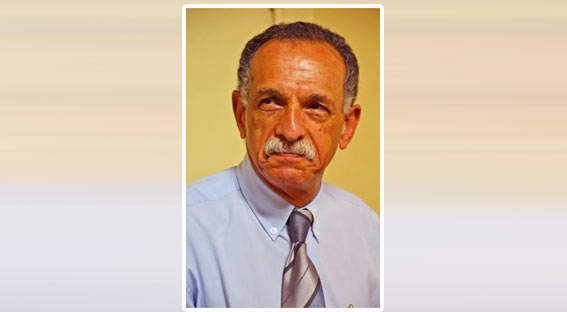I preferred to put off this editorial, which I had a mind to write a few weeks ago, till after Egyptians were done with their enthusiastic celebration of the eighth anniversary of their glorious 30 June Revolution in 2013, which led to the overthrow of the Muslim Brotherhood (MB) Islamist regime that had risen to power in the wake of the 2011 Arab Spring. The Revolution prised Egypt out of the clutches of the Islamists whose time in power was among the most gruesome and regressive in Egypt’s modern history. Egypt then embarked on her fifth Republic under President Sisi, following those of presidents Nasser, Sadat, Mubarak and Mursi. Egyptians have been rightly celebrating the huge reform, development and modernisation the country has achieved post-30 June 2013.
I do not exaggerate when I say that the achievements of the Fifth Republic, “Sisi’s republic”, will go down in history as the era of Egypt’s salvation and rebirth. Egypt won back the global high standing she had lost under the MB once she recovered her cultural characteristics, reformed her economy, and redrew her policy on both domestic and foreign fronts.
Extolling hard won achievements, however, does not mean overlooking weaknesses. Yet I still felt like sharing in the overall jubilation before writing on any shortcomings, lest I sound a discordant note in an otherwise jubilant symphony. Hence my putting off till today this editorial which tackles the achievements and failures of Egypt’s education reform. I write out of a conviction that unhesitating, candid assessment is the best way to achieve reform.
Education reform is among the most significant national issues in Egypt, given that it is the root of reform on all fronts. It is entrusted with producing a new generation of Egyptians who would hold the keys of progress through possessing the knowledge, science, technology, and creativity needed to raise Egypt to the ranks of advanced nations. As such, it constitutes a daunting challenge. Education Minister Tarek Shawki has bravely taken up that challenge, armed with profound experience and a modern perspective of education. However, I believe we are before a case where experience and vision alone are not sufficient; the real challenge is to confront the fierce resistance by backward forces in the current education establishment who have an invested interest in maintaining it unchanged. Add to that the resistance of students and parents who, despite the intolerable problems they encounter with the old system, are yet suspicious of and resistant to anything new. In conclusion, Dr Shawki is at the battlefront of a crusade to replace an old education system that relies on rote learning with a modern one that fosters critical thinking and creativity.
In this context, I would like to refer to a great article written by one of Egypt’s foremost philosophers and intellectuals, Murad Wahba, and published in the daily State owned al-Ahram on 27 April within a series of articles titled “My vision for the 21st century”. Dr Wahba recalled various attempts at reforming education in Egypt since the 1980s, focusing especially on attempts by previous education ministers Fathy Sorour and his successor Hussein Kamel Bahaaeddin. According to Dr Wahba, each of the two ministers initially spoke of a new policy he intended to apply to end rigid, rote learning and establish a modern system based on a culture of independent thinking, research, and creativity. Sadly, the political administration then supported neither ministers, under the pretext of ‘not agitating the masses’.
Today however, it is obvious that the political leadership believes in the imperativeness of education reform and development, and is actively backing Dr Shawki’s policy of doing away with rote learning and implementing free systems that would nurture in students a passion for knowledge and innovation, and lead Egypt into to the future.
I find it sad that the new reform is strongly opposed, not only by those who benefitted from the old system, but by members of the Parliament who blame the Minister of Education for the anger and opposition of students and parents who find the new system unfamiliar and ambiguous. I strongly sympathise with Dr Shawki and hope the political leadership keeps up ardently backing him. I hope for efforts to shed light on the benefits of education reform, to reassure Egyptians and gain their trust on that score.
I repeat what I wrote in a previous editorial that while I remain profoundly confident in Dr Shawki’s policies, I feel concern on account of his insistence on applying the reform at one go nationwide. I believe this overwhelmingly wide scope has substantially contributed in creating some of the problems hindering the reform. I still believe that it would have been more pragmatic to apply the reform policies in phases starting with specific schools such as the Ministry’s “experimental schools”, in order to better train and supervise teachers, and assess the assimilation of reform by students. These schools would have acted as successful prototypes which other schools would then have been eager to emulate. Had this been applied, the Egyptian society might have easily welcomed the reform policies and keenly embraced them instead of resisting them.
Watani International
9 July 2021










